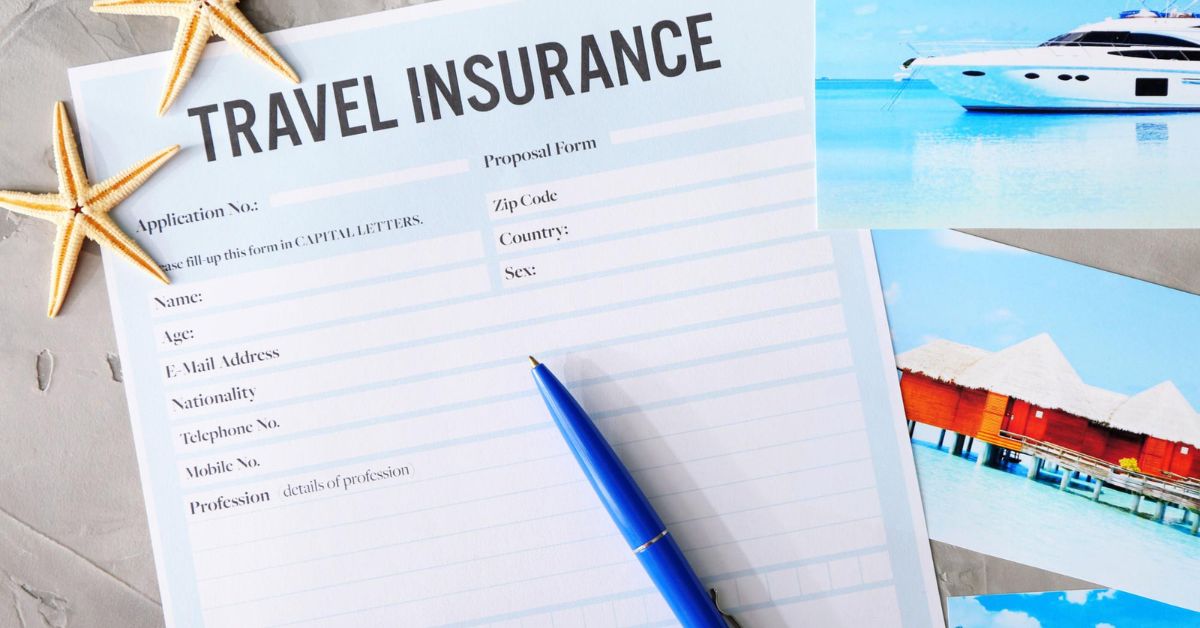Traveling in groups can provide shared adventures and memorable experiences. However, the logistics and risks involved can be overwhelming. Furthermore, knowing how does group travel insurance work can provide a safety net, giving everyone peace of mind.
In this guide, we’ll explore the essentials of a group travel insurance policy, from its key features and benefits to choosing the best group travel insurance. With comprehensive group travel insurance, you can plan your corporate retreat, family reunion, or group tour. Keep reading to learn more.
What is Group Travel Insurance?
Group travel insurance is a policy that covers multiple people under a single plan. It is designed for groups traveling together. This type of insurance is ideal for corporate trips, family vacations, and group tours. It offers coverage for common travel risks.
Unlike individual policies, group travel insurance provides a unified coverage plan. This makes managing and claiming insurance easier for group leaders. Common coverage includes medical emergencies, trip cancellations, and lost luggage. Some policies also cover trip delays and personal liability.
Group travel insurance can be customized based on the group’s needs. This flexibility ensures comprehensive protection for all group members. Overall, group travel insurance ensures everyone in the group enjoys the trip. It provides peace of mind and financial security.
How Does Group Travel Insurance Work?
Group travel insurance covers multiple travelers under a single policy, simplifying the insurance process for group trips. To get started, assess your group’s specific needs. Consider factors like trip duration, destination, and planned activities.
Next, choose an insurance provider that offers group travel policies. Compare different plans to find the best coverage options. Provide necessary information about the group, including the number of travelers and their details. Customize the policy to suit your group’s requirements.
Once the policy is purchased, all members receive coverage for specified risks. This includes medical emergencies, trip cancellations, and lost luggage. In case of an incident, follow the insurance provider’s claim process. Submit required documentation, such as receipts and medical reports, to file a claim.
The insurance company will review the claim and reimburse eligible expenses. This ensures financial protection and support during the trip. Group travel insurance often includes a point of contact for assistance. This contact helps manage any issues that arise during the trip.
Key Features of Group Travel Insurance
Group travel insurance offers a range of essential features that provide comprehensive protection for all group members during their trip.
- Coverage Details: Group travel insurance typically includes coverage for medical emergencies, trip cancellations, lost luggage, and trip delays. Some policies may also cover personal liability and accidental death.
- Customizable Plans: Many insurance providers offer customizable plans. This means you can tailor the coverage to meet the specific needs of your group, ensuring everyone is adequately protected.
- Duration and Geographic Coverage: Group travel insurance can be tailored to cover the entire duration of the trip. It also provides coverage for different geographic locations, including multiple countries.
- Limits and Exclusions: Each policy will have its own limits and exclusions. It’s important to understand these details to know what is and isn’t covered under your plan.
- Emergency Assistance: Most group travel insurance policies include access to emergency assistance services. These services can help with medical referrals, lost passport assistance, and emergency cash transfers.
- Pre-Existing Conditions: Some policies may offer coverage for pre-existing medical conditions. It’s important to disclose any such conditions when purchasing the policy.
- Trip Cancellation and Interruption: This feature reimburses non-refundable expenses if the trip is canceled or interrupted for covered reasons. It provides financial protection against unforeseen events.
- Baggage and Personal Belongings: Group travel insurance often covers loss, theft, or damage to baggage and personal belongings. This ensures compensation for lost or damaged items.
- Accidental Death and Dismemberment: This coverage provides benefits in case of accidental death or severe injury. It offers financial support to beneficiaries in such unfortunate events.
Benefits of Group Travel Insurance
Group travel insurance offers numerous benefits that make it a wise choice for group trips. Here are some of the key advantages explained in more detail:
Cost-Effectiveness
Group travel insurance is often more affordable than individual policies. By insuring multiple travelers under one policy, insurance providers can offer discounted rates. Corporate trips, family vacations, and group tours, especially for large groups, can all benefit from these savings.
Simplified Management
Managing one policy is easier than handling multiple individual ones. For group leaders or organizers, this means less paperwork and administrative hassle. All members are covered under a single policy, simplifying the process of enrollment, payment, and claims management.
Comprehensive Coverage
Group travel insurance provides comprehensive coverage for all members. This typically includes protection against medical emergencies, trip cancellations, lost or delayed luggage, and trip interruptions. With a group policy, you can ensure that everyone has the same level of coverage, avoiding discrepancies and gaps in protection.
Peace of Mind
Knowing that everyone in the group is covered offers peace of mind. It ensures that any unexpected issues, such as accidents or illnesses, can be handled smoothly without causing significant financial strain. This allows travelers to focus on enjoying their trip without constant worry.
Customizable Plans
Group policies can be tailored to meet the specific needs of the group. This flexibility allows you to add or exclude certain coverages based on the nature of your trip. For instance, if you are traveling for adventure activities, you can include coverage for extreme sports, ensuring all potential risks are addressed.
Streamlined Claims Process
Filing a claim with a group policy is often more straightforward. Insurance providers typically have streamlined processes to handle group claims efficiently, minimizing delays and complications. Group leaders can manage claims for the entire group, ensuring quick and effective resolution.
Support for Group Leaders
Group travel insurance often includes a dedicated point of contact. This person can assist the group leader with any issues that arise during the trip, such as medical emergencies or travel disruptions. Having a reliable support system in place can significantly reduce the stress of managing a large group.
Travel Assistance Services
Many group travel insurance plans include access to travel assistance services. These services can help with a wide range of issues, such as emergency medical referrals, legal assistance, lost passport recovery, and emergency cash transfers. This added layer of support can be invaluable in unfamiliar or challenging situations.
Coverage for All Ages
Group travel insurance can cover travelers of all ages. This makes it suitable for family trips, school tours, and corporate outings where participants may range from children to seniors. Comprehensive coverage ensures that everyone, regardless of age, is protected against common travel risks.
How to Choose the Best Group Travel Insurance
Choosing the right group travel insurance is crucial for ensuring adequate protection. Here are some steps to guide you in selecting the best policy for your group:
Assess the Group’s Needs
Begin by assessing your group’s specific needs. Consider factors like the size of the group, the destination, the length of the trip, and any planned activities. Identifying these elements will help you find a policy that meets your requirements.
Compare Policies
Take the time to compare different travel insurance providers and their policies. Look for coverage options, limits, and exclusions. Comparing various plans allows you to understand which providers offer the best benefits and coverage for your group.
Read the Fine Print
Carefully review each policy’s terms and conditions. Pay attention to coverage limits, deductibles, and any exclusions that may apply. Understanding the fine print helps avoid unexpected surprises when filing a claim.
Consider Group Size
Some insurance providers may offer discounts based on the size of the group. Larger groups may qualify for better rates or additional benefits. Ensure you check how many travelers are required to qualify for group coverage.
Look for Customization Options
Ensure that the policy allows for customization. A flexible policy enables you to add specific coverage based on your group’s activities. For example, if your group plans to participate in adventure sports, seek a policy that covers those activities.
Check for Customer Reviews
Research customer reviews and testimonials for potential insurance providers. Feedback from other travelers can provide insights into the provider’s reliability and customer service. A company with positive reviews is likely to offer better support during claims.
Evaluate the Claims Process
Investigate the claims process for each insurance provider. A straightforward and efficient claims process can save time and reduce stress during emergencies. Look for providers known for prompt claim settlements and responsive customer service.
Consult with an Expert
If you are unsure about the coverage options, consider consulting with an insurance expert or broker. They can help you navigate different policies and recommend the best options for your group’s specific needs.
Review Cancellation Policies
Understand the cancellation policies associated with the travel insurance. Some policies may offer a “free look” period during which you can review and cancel the policy without penalty. Knowing these details helps in case plans change unexpectedly.
Ensure All Members Are Covered
Before finalizing the policy, ensure that all group members are included. Confirm that everyone has been enrolled and that their specific needs are addressed within the coverage. This ensures complete protection for the entire group.
FAQs
Do you have to travel together on group travel insurance?
Typically, with a single-trip group policy, all named individuals must travel together for coverage to be valid. If members travel separately, the policy may not apply. However, some insurers offer flexible options that allow individual travel under a group policy. Always review the specific terms of your policy to understand the requirements. This ensures that all group members are adequately protected during their trips.
Does travel insurance cover a couple?
Yes, travel insurance can cover couples traveling together. Many insurers offer couple or family plans that provide coverage for both individuals. These plans typically include protection for medical emergencies, trip cancellations, and lost luggage.
Coverage details may vary by policy, so it’s important to review the specific terms. Additionally, couples can also opt for individual policies if their travel needs differ. Overall, there are flexible options available to suit couples’ travel needs.
Read More: Do I Need Travel Insurance For Japan
The Takeaway
Ultimately, knowing how group travel insurance works is essential for a worry-free trip. It provides everyone with comprehensive coverage, financial protection, and peace of mind. Choose the right policy and assess your group’s needs to make sure everyone is covered. Whether you’re traveling together or separately, group travel insurance can cover you. Make informed decisions to enjoy your travels with confidence.


